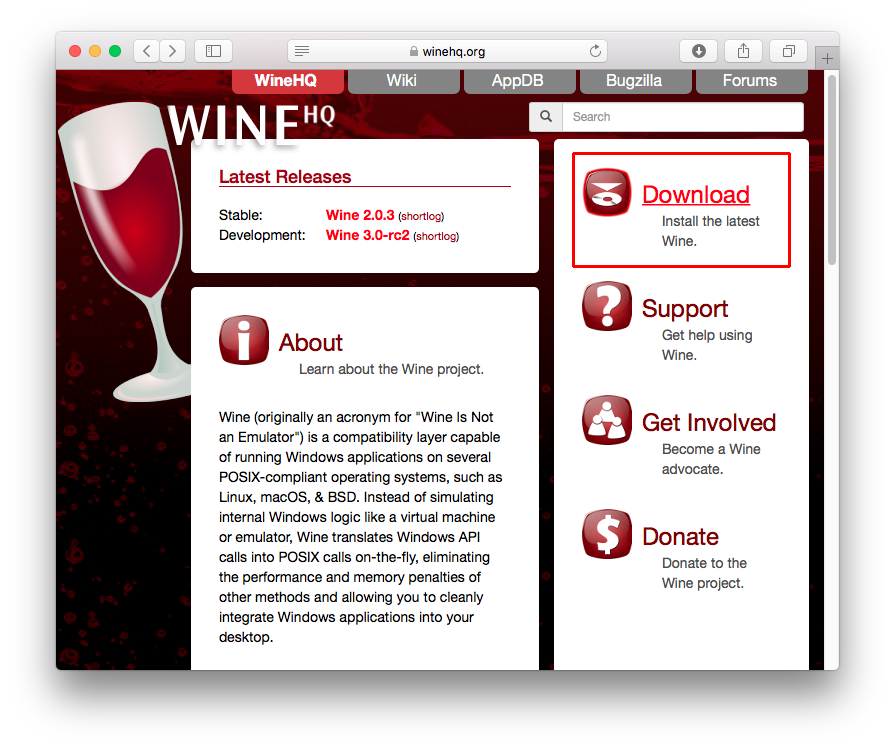
The other reason is that computers were getting fast enough that emulators of older hardware were starting to get useful enough for people to be aware of them, but were slow.
Wine equivalent for mac programs code#
It could also be linked with native Unix code to make it easier to produce native Unix ports of Windows programs. One of the reasons is that Wine can be used for more than just taking a Windows binary and running it on Unix. I apparently though they were somewhere I'd be able to easily find again, and was evidently wrong. I don't have cites for these because I didn't save links. I've not been able to find for sure why they stopped calling it an emulator, but it looks like there were two things. > This is release 981211 of Wine, a free implementation of Windows on Unix > This is release 981108 of Wine, the MS Windows emulator The release notes for 981108 described at thusly: They didn't stop calling it an emulator until the end of 1998. > The word Wine stands for one of two things: WINdows Emulator, or Wine Is Not an Emulator. Sometime over the next four years, it did become an alternative meaning of the name, but I'm not sure exactly when or why. I liked "whine", but felt that it was too long.Īs far as I have been able to tell, nothing further came of the "not an emulator" suggestion at that time.

This led me to think of "whine"Īnd "whinny". > My orignal line of thinking was "winemu", but I didn't like that. The history of the "wine is not an emulator" thing is interesting, since the name originally in fact meant "WINdows Emulator".Īs far as I have been able to dig up, the first suggestion to change the meaning to "Wine Is Not an Emulator" came up on Usenet in 1993, when there was some concern that "Windows Emulator" might run into trademark problems.īob Amstadt responded to that telling how the name "wine" came about: But 64-bit WINE can't run 32-bit Windows apps because it's not an emulator, it's a binary loader and a set of system libraries


 0 kommentar(er)
0 kommentar(er)
